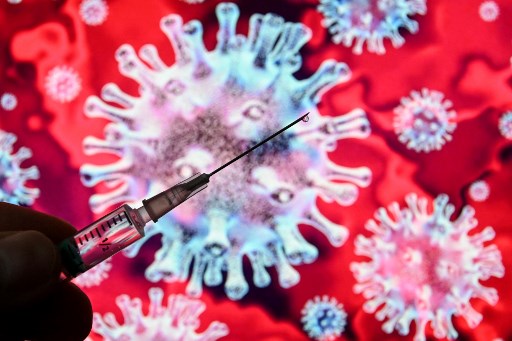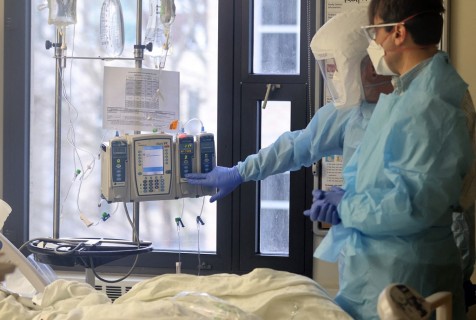Latest Omicron subvariant dubbed BA.2 detected in Britain, 40 other countries including India, Denmark and Sweden

by Isabelle TOURNÉ
Agence France Presse
PARIS, France (AFP) — Scientists are keeping a close watch on a recently-discovered sub-variant of the Omicron version of the Covid-19 virus to determine how its emergence could effect future pandemic spread.
The initial Omicron variant has become the dominant virus strain in recent months but British health authorities have notably identified hundreds of cases of the latest version, dubbed BA.2, while international data suggest it could spread relatively quickly.
The UK Health Security Agency (UKHSA) identified more than 400 cases in Britain in the first ten days of this month and has indicated the latest variant has been detected in some 40 other countries, accounting for a majority of most recent cases in some nations including India, Denmark and Sweden.

The UKHSA indicated Friday it had designated the BA.2 sub-lineage as a variant under investigation (VUI) as cases of it were on the increase even if, in Britain, the BA.1 lineage currently remains dominant.
The authority underlined that “there is still uncertainty around the significance of the changes to the viral genome,” which required surveillance as, in parallel, cases in recent days showed a sharp rise in BA.2 incidence notably in India and Demark.
“What surprised us is the rapidity with which this sub-variant, which has been circulating to a great extent in Asia, has taken hold in Denmark,” French epidemiologist Antoine Flahault told AFP.
Scientists must evaluate how the virus, which has engendered the worst global health crisis in a century, continues to evolve and mutate. Its latest incarnation does not possess the specific mutation used to track and compare BA.1 against Delta, the previously dominant strain.

BA.2 has yet to be designated a variant of concern — but Flahault says countries have to be alert to the latest development as scientists ramp up surveillance.
“(France) expected a spike in contaminations in mid-January: It didn’t happen and perhaps that is due to this sub-variant, which seems very transmissible but not more virulent” than BA.1, he observed.
“What interests us is if this (sub-variant) possesses different characteristics” from BA.1 in terms of contagiousness and severity, France’s public health agency said Friday.
To date, only a handful of BA.2 cases have emerged in France — but the country is monitoring developments as they spread across the Channel.
– “Comparable severity” –
Flahault, director of the University of Geneva’s Institute of Global Health, says the watchword is not panic but “vigilance” as “for now we have the impression (BA.2 case) severity is comparable to” classic variant Omicron cases.
“But there are numerous questions on the table” and a need to monitor properties of the new variant on the block.
“Very early observations from India and Denmark suggest there is no dramatic difference in severity compared to BA.1,” tweeted Tom Peacock, a virologist at Imperial College, London, adding the latest variant should not call into question the effectiveness of existing vaccines.
Peacock stressed that “we do not currently have a strong handle on … how much more transmissibility BA.2 might have over BA.1. However, we can make some guesses/early observations.”
He added that “there is likely to be minimal differences in vaccine effectiveness against BA.1 and BA.2. Personally, I’m not sure BA.2 is going to have a substantial impact on the current Omicron wave of the pandemic.
“Several countries are near, or even past the peak of BA.1 waves. I would be very surprised if BA.2 caused a second wave at this point. Even with slightly higher transmissibility this absolutely is not a Delta-Omicron change and instead is likely to be slower and more subtle,” he forecast.
French Health Minister Olivier Veran said Thursday that BA.2 did not look as if it would prove a game-changer as variants appear on the scene “fairly regularly”. But he indicated he would reserve judgment.
“What we know for now is that (BA.2) more or less corresponds to the characteristics that we know of Omicron” mark one.
© Agence France-Presse







